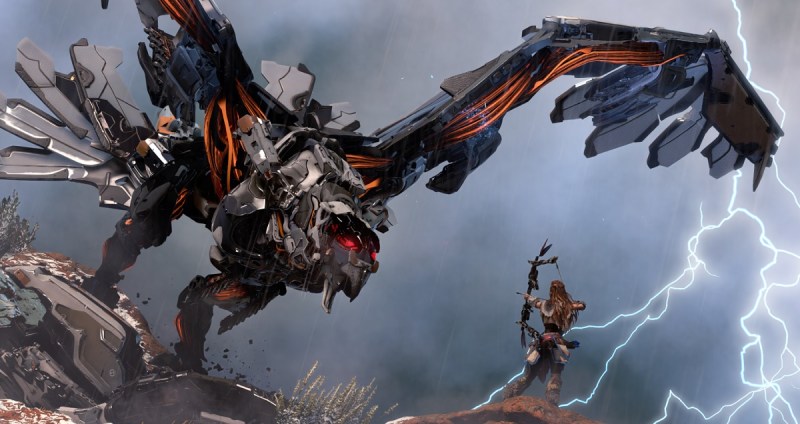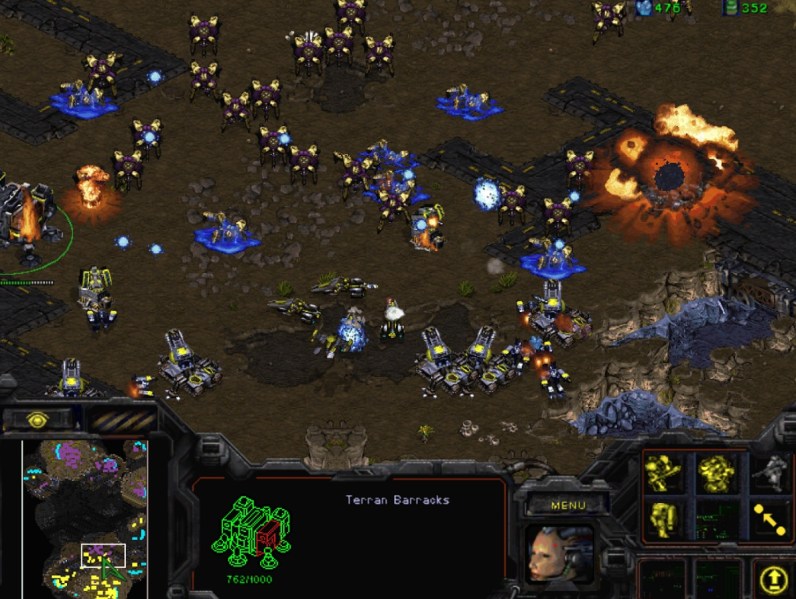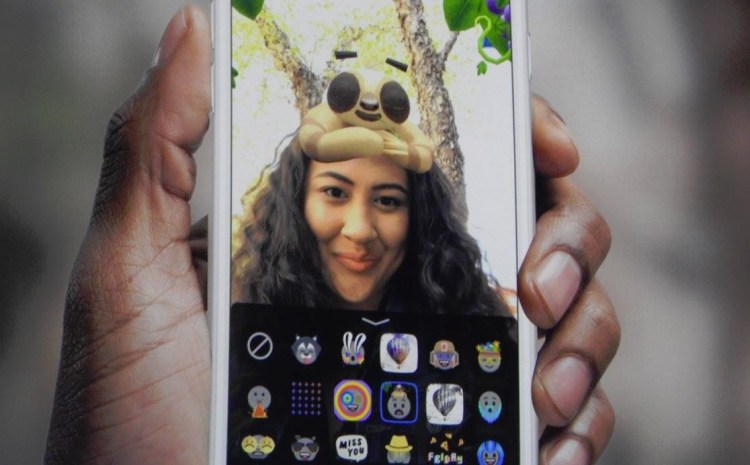Some of the best moments I’ve had playing games lately involve sitting on the couch and assuming the identity of Aloy, the female hero of Guerrilla Games’ beautiful PlayStation 4 game, Horizon Zero Dawn. I could spend a lot more evenings lurking through forests and using a bow to take down fearsome dinosaur-like machines that have taken over the post-apocalyptic Earth.
And then, this week, I saw Mark Zuckerberg get up on stage at the F8 developer conference in San Jose, Calif., and show his vision for augmented reality games that will come for to smartphones starting this fall. Zuckerberg’s games were crude, but cute animations overlaid on the real world, just like the bunny ears that you paste on your face using social tools like Snapchat. This thing that seems so simplistic today could one day be “one of the great transformational technologies of the next 50 years,” according to Mike Abrash, chief scientist at Oculus.
It’s hard to believe that these two very different kinds of experiences are part of the same industry that we call games. They signal to me the breadth of what is possible, such as mobile games like Clash Royale, where you match wits against another human in a real-time re-creation of rock-paper-scissors, and the social virtual reality experience of Star Trek Bridge Crew, where you command a starship with three other people.

Above: Aloy has guts in Horizon: Zero Dawn
This kind of diversity is crazy, and it’s why games are so unpredictable and so fun for so many different people. It’s also why gaming is expected to become a $108.9 billion market this year, according to report released this week by market research Newzoo. That represents year-over-year growth of 7.8 percent, or $7.8 billion. We’re going to celebrate and inspect this growth and more at our GamesBeat Summit 2017 event.
We’ve always been impressed when a single game goes mainstream and captures the imagination of everyone. Games like Call of Duty have racked up huge sales numbers above $1 billion every year, but they haven’t reached the scale of mobile titles like Pokémon Go, which has 65 million players a month.
I think this means we are closer than ever to the day when the word “gamer” loses its meaning. We don’t call people filmers or moviers because they watch movies. We don’t identify people as music listeners. Gamer is an identity that applies to people with such different tastes that they don’t seem like they’re part of the same group.
That’s ironic, as gamers have long sought the recognition and status assigned to other more appreciated, more artistic passions. Just as they’ve reached their goal of ubiquity, the glue that holds the group together dissolves into nothing. A different kind of gamer resides in all of us, as we can all contain multitudes. But the person who plays Horizon Zero Dawn obsessively shares so little in common with the one who plays Candy Crush Saga. Can we call these people the same thing?
One day, I’ll be wearing Mark Zuckerberg’s glasses in the grocery store, and I’ll compete with other shoppers to buy the top ten items of the day.

Above: StarCraft: Remastered is still coming, but you can get the older game now for free.
As I try to cover the whole of gaming, I feel myself being stretched in many different directions. I can spend one day writing about daily fantasy sports, and the next day I might be talking to Jam City CEO Chris DeWolfe about a Snoopy Pop bubble shooter game. The next day, I can get really excited about the newest Call of Duty, I can be disturbed to my core about the eerie relevance of Orwell, and I can revel in the fact that the original StarCraft is now free. But I don’t understand fellow GamesBeat writer Mike Minotti and his obsession with Mega Man.
It feels like we’re in some kind of exploding Big Bang. Like receding star systems, our gaming worlds are becoming more and more expansive, but we are fragmenting. We are moving farther and farther apart. As the gaming audience reaches into the billions, it becomes harder for a single game to reach every person. I no longer see what these gamers and gaming worlds have in common except a passion for play.
That doesn’t mean gaming won’t be a lucrative market or that targeting gamers is a bad idea. It just means that you now have to target them more intelligently than ever and speak in an authentic way to each gaming world and its fans. In that way, the world of games is like the ever-expanding internet, which is growing more fragmented by the day but caters to the needs of a myriad number of tribes.
I saw that Sensor Tower, a mobile measurement firm, said that the top 10 app publishers of the first quarter accounted for 67 percent of all revenue. That suggests that mobile gaming is consolidating and concentrating. But that’s just one sector of gaming. Over time, I have to believe that the Cambrian explosion of games — which offers new games for almost every taste or person — will continue in the future.
Zuckerberg and Abrash are betting that the advance of technology — which will deliver us amazing AR glasses that look like today’s ordinary optical glasses — will make possible the platforms for amazing games of the future. That may be, but I don’t see anything yet that will pry me away from games like Horizon Zero Dawn. My perfect game will be unlike anybody else’s. And who knows? Maybe one day we will have a different game for every person on Earth. And that’s not such a crazy idea, give Zuckerberg’s ambitions.

